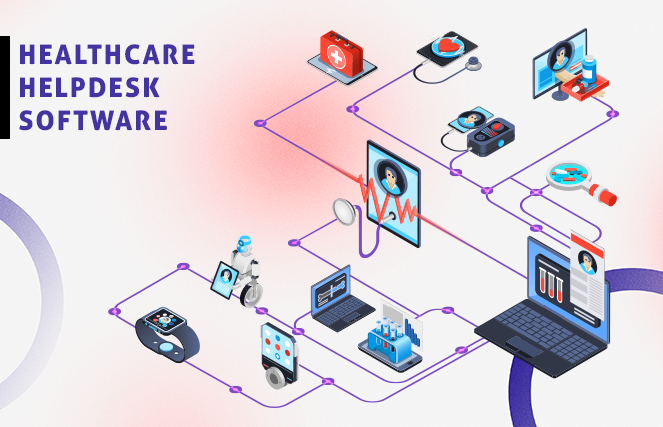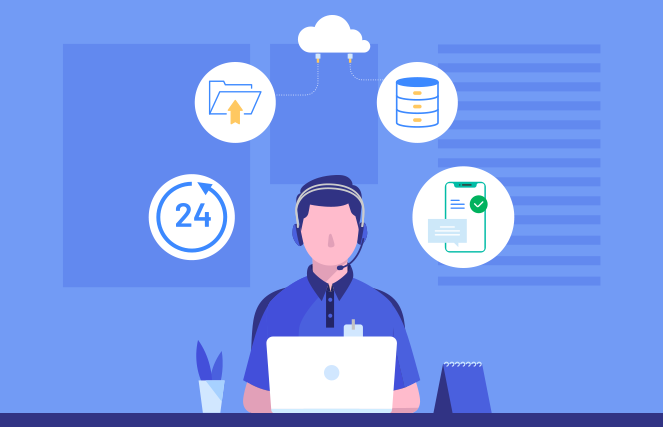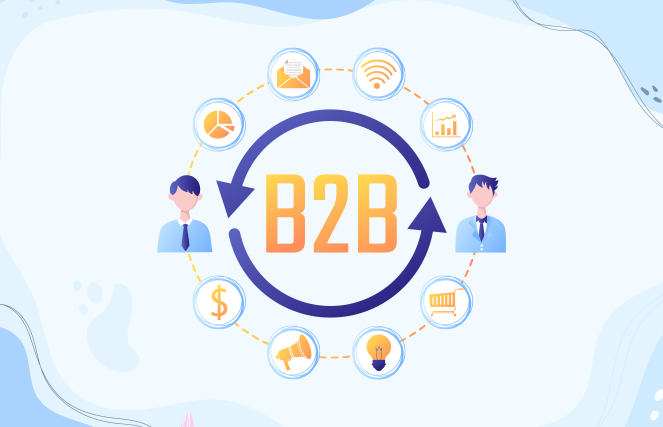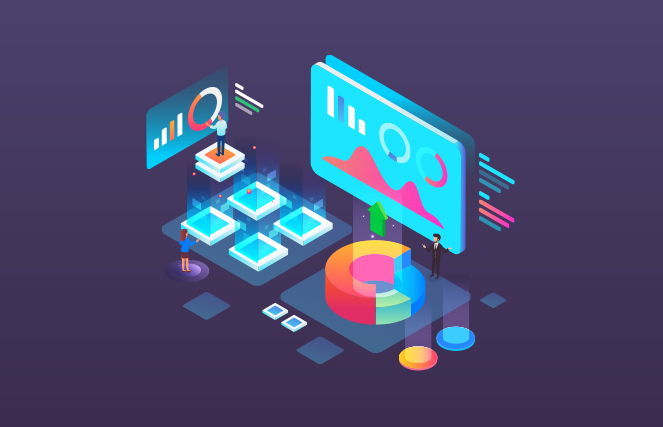The shift to cloud-based services has shown incredible advancements in the healthcare industry in the past few years. Software as a service (SaaS) has nullified the need for hosted servers and has made information accessible remotely without any constraints. SaaS solutions have also reduced the cost of support and redundancy.
In 2023, SaaS providers will facilitate easier collaboration enabling quick scalability and easy integration without requiring the conventional infrastructure. Besides, upgrading processes and evolving systems have become easier than ever. Studies state that:
- The Healthcare industry is adopting the SaaS model at 20% per year.
- The cloud computing market pertaining to healthcare is predicted to reach $51.9 billion by 2024.
Covid-19 and its Ripple Effect
The Covid-19 pandemic only pushed the healthcare industry to become flexible and agile. It has been the largest test case for technological adoption ever. This has only accelerated the adoption of Saas-based solutions or healthcare helpdesk evolution software. The tech that was once considered costly, risky, and complex is now seen as an enabler and the foundation to catapult global healthcare.
Healthcare helpdesk Evolution software:
- Can support the conduct of clinical trials globally
- Can bring together data points from tens of thousands of unique trial participants
- It is fully connected and fully functional at all times
- Nowhere is it more prevalent than in the vaccine trials for Covid-19
We’re seeing drugs go through phase one to phase three within six months, which traditionally would typically have taken a decade to develop. The need for speed is obvious here. And SaaS solutions are helping out in achieve that. No doubt, these learnings will be like ripples in a pond to other areas of the medical world.
Long story short: SaaS is the coolest and smartest thing for healthcare management stakeholders right now. In this article, we’ll take a closer look at the technicalities of how healthcare helpdesk evolution software is helping stakeholders evolve. Here are some prominent areas where the healthcare support portal is actively contributing:
1. Patient Enquiries: Maintain The Flow
The most crucial problem that healthcare management faces is maintaining their patient inquiries. The doctors and the caregivers are responsible for attending to patients in clinics. Doctors receive updates about symptoms over phone calls or sometimes even emails. They have to spend a lot of time (and effort) getting all the information in order. Especially since the pandemic, telephonic medication has become prominent.
The telemedicine market in the U.S. is expected to surpass over $64 billion by 2025. It is undergoing exponential growth and shows no signs of slowing down.
Healthcare helpdesk software can help them streamline all the queries into one central system. This way, doctors can continue conversations across various devices or channels with their patients. A robust healthcare support portal would let healthcare providers start a conversation over an email but switch to the phone (if required) seamlessly.
Read More: Healthcare Helpdesk Software: A Boon For Healthcare Customer Service
2. Effortless Collaboration: A Completely Contextual Care
Doctors often need to consult specialists in various departments before firmly diagnosing certain cases. This often pushes the patients to go from one medical expert to another, depending on their needs. This largely hinders the patient experience, and it is the last thing they want. Don’t you think having all of this on record in one place will make collaboration easier for the healthcare team? It will also enable you to provide the best patient experience out there.
A helpdesk healthcare software has features like private notes and forwards tickets to communicate with each other right next to the customer queries or incidents, giving a full context to professionals from other departments automatically. Then there are features like shared ownership that allow healthcare providers and administrators to collaborate closely to solve billing, appointments, and so on.
3. Bridge The Data Gap
The Healthcare industry is largely founded on and utterly reliant on data. Data plays a huge role in ensuring qualitative healthcare. Therefore, transparency in data becomes paramount. “Why?” you’d ask; here are some reasons:
- Medical professionals need to have a clearer insight into a patient’s medical history.
- A central system ensures lesser to no information loss.
- Reduces manual work and the redundancies that go with it.
There can also be instances where the patient is not in the condition to answer important medical questions by themselves. None of this would be possible without adopting new technology solutions like healthcare helpdesk software. Electronic medical records through helpdesks can bring clear improvements in the transparency of medical information. In the U.S.A., about 64% of physicians have electronic health records that they can access for more information on their patients. So, the trend is on the rise, and we can expect to see more medical institutions that offer e-records to their patients.
Enable your patients to receive better and more efficient treatments. Adopt a healthcare helpdesk software today and take advantage of cutting-edge technology today.
4. Ease the Administration’s Work
Administrators in every hospital have to handle everything from scheduling appointments and working on insurance to handling admission procedures. With such a wide variety of tasks at hand, the administrators need assistance in dealing with the easier, repetitive tasks. This will help them concentrate on the ones that cause an impact on patient’s lives. Here’s how healthcare helpdesk software can help administrations:
I. Make Self-Service Easy
Admin teams naturally face a lot of repetitive questions like:
- Information about insurance providers.
- What forms to fill out to dispute a bill?
- How and when to schedule appointments?
- Internal queries, etc.
With healthcare helpdesk software, the admin can create guides or FAQs for both internal users and patients’ queries so they get the answers they need faster.
II. Automation To Prevent Repetition
Automation features can scan through every incoming query and every ticket. Admins can configure automation to automatically assign these tickets to the right doctor or healthcare personnel based on the query’s parameters. These automation features can also help you keep an eye on open cases. You can escalate the unattended issues automatically too. It saves admins from tons of paperwork and manual scheduling.
5. Easy Access To Patient Information
Minor queries do not require a healthcare professional to answer every time. Sometimes patients would just want to access their information like previous bills for filing taxes. Or maybe they’re looking forward to getting treatment from the hospital and want to check out their policies on insurance. Maybe they only want to schedule an appointment with the doctor. These actions do not necessarily need the attention of healthcare professionals each time.
With healthcare helpdesk software, you can set up knowledge bases to answer frequently asked questions. With a streamlined system, patients should be able to access their records by logging into the healthcare helpdesk software. This should be regardless of the channel they contacted the hospital previously via. Similarly, another example would be Saas companies providing QR code generation services in healthcare to let patients easily access their data through a QR code embedded in their medical files.
Read More: Customer Support in Healthcare and How to Ace it.
Adoption Challenges: Where Does The Hesitation Lay?
Some common reasons for the hesitation in adopting healthcare helpdesk solutions include:
- Data security concerns
- Contracting healthcare budget
- Regulatory compliance
- The need to train people effectively
- Managing and maintaining the upgrades
The popular saying goes:
With great power comes great responsibilities.
It applies to the healthcare industry as well. Patients are at the center of everything, and the focus remains paramount. And this inevitably includes keeping the patient data safe. The largest barrier to adopting healthcare helpdesk software lies in the data volume and regulation. Arguably, healthcare data is as sensitive and dense as the finance or insurance industries, which were much earlier adopters of SaaS development solutions. This is why there has always been a hesitance in the sector to change how data is handled.
As opposed to this, healthcare helpdesk software has multiple benefits. But the benefits of this self-perpetual cycle will not be felt as long as the healthcare industry refuses to adopt it. Once they take this technological leap forward, healthcare stakeholders will find it very difficult to take a step back. The only solution to this is teaming up with reliant technological partners. Choose your tech partners wisely, the one that works best to implement appropriate security and protection measures and ensure data safety.
DeskXpand: Secure, Robust, And Reliant
Known for its scalability and personalization, DeskXpand lets you connect seamlessly and understand all your patient data—wherever it lives. We can help you empower your services and provide a top-notch healthcare experience to your patients. We are ISO27001-certified healthcare portal experts with 15+ years of industry experience. Request a personalized demo to know more.
Sign up for a free trial today







